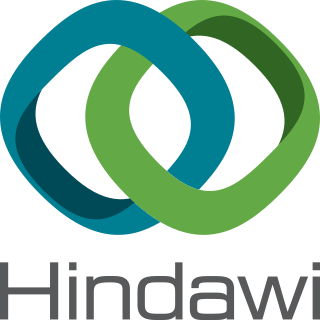Related Research Articles
Scientific misconduct is the violation of the standard codes of scholarly conduct and ethical behavior in the publication of professional scientific research. It is violation of scientific integrity: violation of the scientific method and of research ethics in science, including in the design, conduct, and reporting of research.
In academic publishing, a retraction is a mechanism by which a published paper in an academic journal is flagged for being seriously flawed to the extent that their results and conclusions can no longer be relied upon. Retracted articles are not removed from the published literature but marked as retracted. In some cases it may be necessary to remove an article from publication, such as when the article is clearly defamatory, violates personal privacy, is the subject of a court order, or might pose a serious health risk to the general public.

The Committee on Publication Ethics (COPE) is a nonprofit organization whose stated mission is to define best practice in the ethics of scholarly publishing and to assist editors and publishers to achieve this.

The ICMJE recommendations are a set of guidelines produced by the International Committee of Medical Journal Editors for standardising the ethics, preparation and formatting of manuscripts submitted to biomedical journals for publication. Compliance with the ICMJE recommendations is required by most leading biomedical journals. Levels of real compliance are subject to debate. As of 9 January 2020, 5570 journals worldwide claim to follow the ICMJE recommendations.
Gideon Koren, FACMT, FRCP(C) is an Israeli-Canadian pediatrician, clinical pharmacologist, toxicologist, and a composer of Israeli folk music. He was a doctor at the Hospital for Sick Children and a professor at the University of Toronto. In 1985, Koren founded the Motherisk Program in Toronto, which was later shut down amid controversy. Furthermore, multiple scientific papers authored by Koren have been subject to concerns regarding academic and research misconduct, leading to the retraction of six research articles and editorial expression of concerns on multiple others. Koren currently has relinquished his licence to practice medicine due to an ongoing investigation into whether he committed “professional misconduct or was incompetent” while he was in charge of the Hospital for Sick Children’s Motherisk laboratory.

Hindawi was a publisher of peer-reviewed, open access, scientific journals active in scientific, technical, and medical (STM) literature. It was founded in 1997 in Cairo, Egypt, and purchased in 2021 for $298 million by John Wiley & Sons, a large US-based publishing company.

PLOS One is a peer-reviewed open access mega journal published by the Public Library of Science (PLOS) since 2006. The journal covers primary research from any discipline within science and medicine. The Public Library of Science began in 2000 with an online petition initiative by Nobel Prize winner Harold Varmus, formerly director of the National Institutes of Health and at that time director of Memorial Sloan–Kettering Cancer Center; Patrick O. Brown, a biochemist at Stanford University; and Michael Eisen, a computational biologist at the University of California, Berkeley, and the Lawrence Berkeley National Laboratory.
The Vancouver system, also known as Vancouver reference style or the author–number system, is a citation style that uses numbers within the text that refer to numbered entries in the reference list. It is popular in the physical sciences and is one of two referencing systems normally used in medicine, the other being the author–date, or "Harvard", system. Vancouver style is used by MEDLINE and PubMed.
MDPI is a publisher of open-access scientific journals. It publishes over 390 peer-reviewed, open access journals. MDPI is among the largest publishers in the world in terms of journal article output, and is the largest publisher of open access articles.
Medical ghostwriters are employed by pharmaceutical companies and medical-device manufacturers to produce apparently independent manuscripts for peer-reviewed journals, conference presentations and other communications. Physicians and other scientists are paid to attach their names to the manuscripts as though they had authored them. The named authors may have had little or no involvement in the research or writing process.

Didier Raoult is a retired French physician and microbiologist specialising in infectious diseases. He taught about infectious diseases at the Faculty of Medicine of Aix-Marseille University (AMU), and in 1984, created the Rickettsia Unit of the university. From 2008 to 2022, Raoult was the director of the Unité de Recherche sur les Maladies Infectieuses et Tropicales Emergentes. He gained significant worldwide attention during the COVID-19 pandemic for vocally promoting hydroxychloroquine as a treatment for the disease, despite the lack of evidence for its effectiveness and the subsequent opposition from NIH and WHO to its use for the treatment of COVID-19 in hospitalized patients.
Lorenza S. Colzato is an Italian cognitive psychologist who is best known for the attention she received in the mainstream media in the Netherlands for multiple incidents of scientific misconduct. Her research "aims to understand the neural and neuromodular underpinnings of cognitive control in humans."
Frontiers in Psychology is a peer-reviewed open-access academic journal covering all aspects of psychology. It was established in 2010 and is published by Frontiers Media, a controversial company that is included in Jeffrey Beall's list of "potential, possible, or probable predatory publishers". The editor-in-chief is Axel Cleeremans.

Retraction Watch is a blog that reports on retractions of scientific papers and on related topics. The blog was launched in August 2010 and is produced by science writers Ivan Oransky and Adam Marcus. Its parent organization is the Center for Scientific Integrity, a US 501(c)(3) nonprofit organization.

OMICS Publishing Group is a predatory publisher of open access academic journals. It started publishing its first journal in 2008. By 2015, it claimed over 700 journals, although about half of them were defunct. Its subsidiaries and brands include Allied Academies, Conference Series LLC LTD, EuroSciCon LTD, Hilaris Publishing, iMedPub LTD, Longdom Publishing SL, Meetings International, Pulsus Group, Research & Reviews, SciTechnol, Trade Science Inc, Life Science Events, Walsh Medical Media, and IT Medical Team.
Frontiers Media SA is a publisher of peer-reviewed, open access, scientific journals currently active in science, technology, and medicine. It was founded in 2007 by Kamila and Henry Markram. Frontiers is based in Lausanne, Switzerland, with offices in the United Kingdom, Spain, and China. In 2022, Frontiers employed more than 1,400 people, across 14 countries. All Frontiers journals are published under a Creative Commons Attribution License.
Yoshitaka Fujii is a Japanese researcher in anesthesiology, who in 2012 was found to have fabricated data in at least 219 scientific papers, of which 183 have been retracted.

Predatory publishing, also write-only publishing or deceptive publishing, is an exploitative academic publishing business model that involves charging publication fees to authors while only superficially checking articles for quality and legitimacy, and without providing editorial and publishing services that legitimate academic journals provide, whether open access or not. The rejection rate of predatory journals is low, but seldom zero. The phenomenon of "open access predatory publishers" was first noticed by Jeffrey Beall, when he described "publishers that are ready to publish any article for payment". However, criticisms about the label "predatory" have been raised. A lengthy review of the controversy started by Beall appears in The Journal of Academic Librarianship.

Conflicts of interest (COIs) often arise in academic publishing. Such conflicts may cause wrongdoing and make it more likely. Ethical standards in academic publishing exist to avoid and deal with conflicts of interest, and the field continues to develop new standards. Standards vary between journals and are unevenly applied. According to the International Committee of Medical Journal Editors, "[a]uthors have a responsibility to evaluate the integrity, history, practices and reputation of the journals to which they submit manuscripts".
References
- COPE Notes. "COPE Forum 26 February 2018: Expressions of concern" (PDF). Committee on Publication Ethics.
- ICMJE. "Scientific Misconduct, Expressions of Concern, and Retraction". International Committee of Medical Journal Editors. December 2019. Retrieved 18 December 2021.
- Morris S, Barnas E, LaFrenier D, Reich M (2013). The Handbook of Journal Publishing. Cambridge University Press. ISBN 9781107020856.